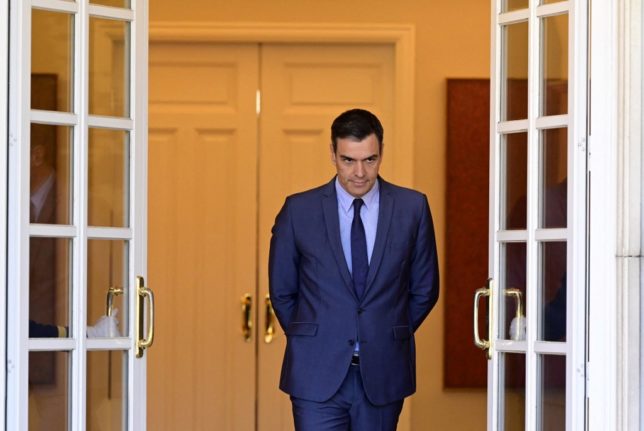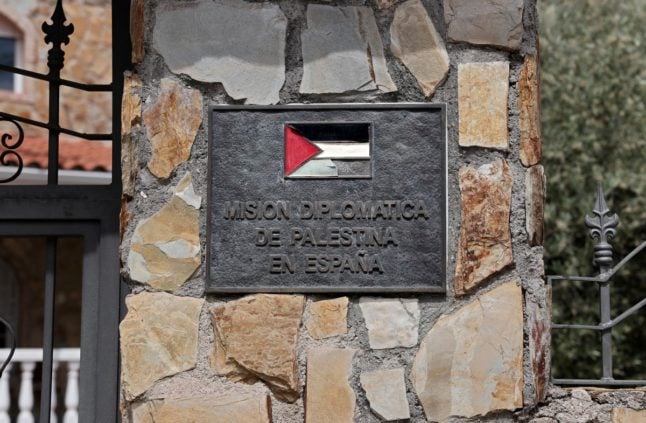The outcome of the May 28th local and regional elections was “very bad for the whole of the hard-left”, said Anton Losada, a political scientist from Santiago de Compostela University, referring to parties to the left of Sánchez’s Socialists.
Podemos, the junior partner in Sánchez’s coalition and the main hard-left actor, saw its support collapse in the municipal vote and the faction even disappeared altogether in several regions, including Madrid and Valencia.
READ ALSO: Five key takeaways from Spain’s regional and local elections
It was also a bad day for Labour Minister Yolanda Díaz, number three in Sánchez’s government who is spearheading the hard-left’s electoral hopes.
Although she had no role in the vote, she was involved in several failed campaigns, including that of Barcelona mayor Ada Colau and her Valencian counterpart Joan Ribó, both of whom lost their seats.
For Lluís Orriols, a political scientist at Madrid’s Carlos III University, the result was the final nail in the coffin for the hard left, marking its “failure” to put up a united front that would inspire its voters.
Podemos, which grew out of the anti-austerity “Indignados” protest movement to become Spain’s third-largest political force in 2015, delighted its followers by entering a coalition government with the Socialists in 2020.
But the excitement has largely faded following a string of disputes and controversies, notably Podemos’ flagship rape law which paradoxically allowed some offenders to reduce their sentences.
READ ALSO: Who won where in Spain’s regional elections?
Unite or die
The electoral collapse of the hard left is bad news for Sánchez, whose Socialists also took a beating on Sunday May 28th, losing six regions to the right and being roundly beaten in the local poll by the right-wing Popular Party, which won most votes.
With polls suggesting the right will win on July 23rd – although without an absolute majority, it will need support from the far-right Vox to govern – Sánchez will need the hard left to do well if is to have any chance of reviving his coalition.
“For the left as a whole to have a good result, it’s obvious that the hard-left need to be united,” said Oriol Bartomeus, a political scientist from Barcelona’s Autonomous University.
READ ALSO: Spanish PM calls snap election for July
And for the upcoming elections, “they have no other option” than to come together in a single list if they want to avoid its voters abstaining as they did on Sunday, warned Losada.
And if they are unable to do so “the punishment at the ballot box could be devastating.”
Time running out
The snap election has also thrown down the gauntlet for Labour Minister Díaz, who is fighting against the clock to unify the hard-left on her Sumar platform although she only has until June 9th to register it for the elections.
“I am an optimistic woman and there’s no doubt we will have reached an agreement” by then, she said on Friday.
“It is a complex process because it involves bringing together some very different political forces,” Universities Minister Joan Subirats, who belongs to Podemos, told public television on Thursday evening.
The main obstacle has been Podemos, which until now has demanded a prominent role, although its dire result on Sunday has weakened its position.
“We have to accept the result. We need to be humble,” admitted Pablo Iglesias on Monday. A co-founder of Podemos, who led it from 2014 until 2021 when he stepped back from politics, he remains the party’s most influential voice.
Even if the hard left was to unite under a single banner, it remains unclear whether such a “last-minute agreement” would be capable of producing a platform that would captivate the voters’ imagination, said Orriols.
“They wasted time for the past two years” with squabbling between Podemos and Díaz, “and now it’s everyone for himself,” he added.



 Please whitelist us to continue reading.
Please whitelist us to continue reading.
Member comments